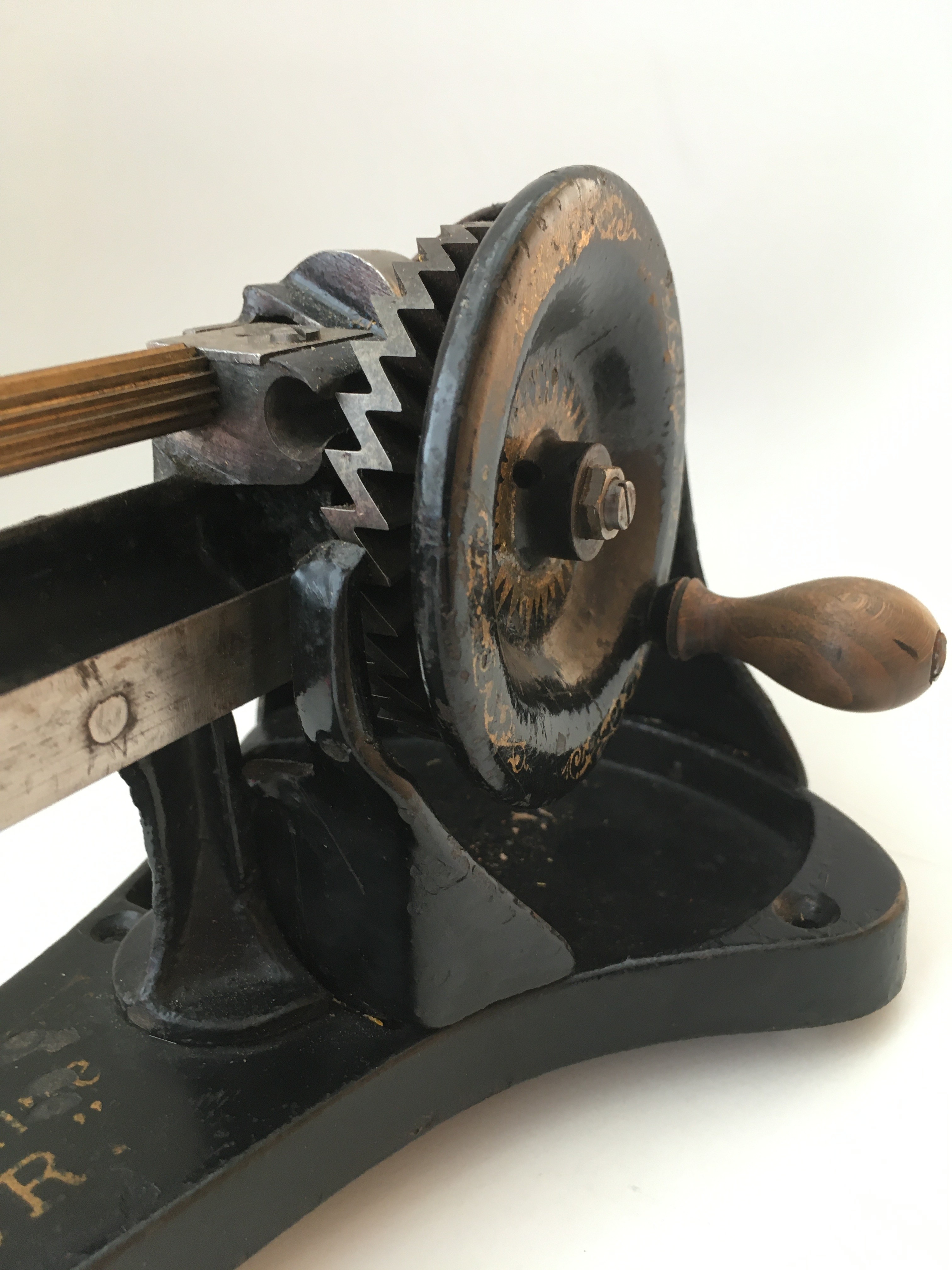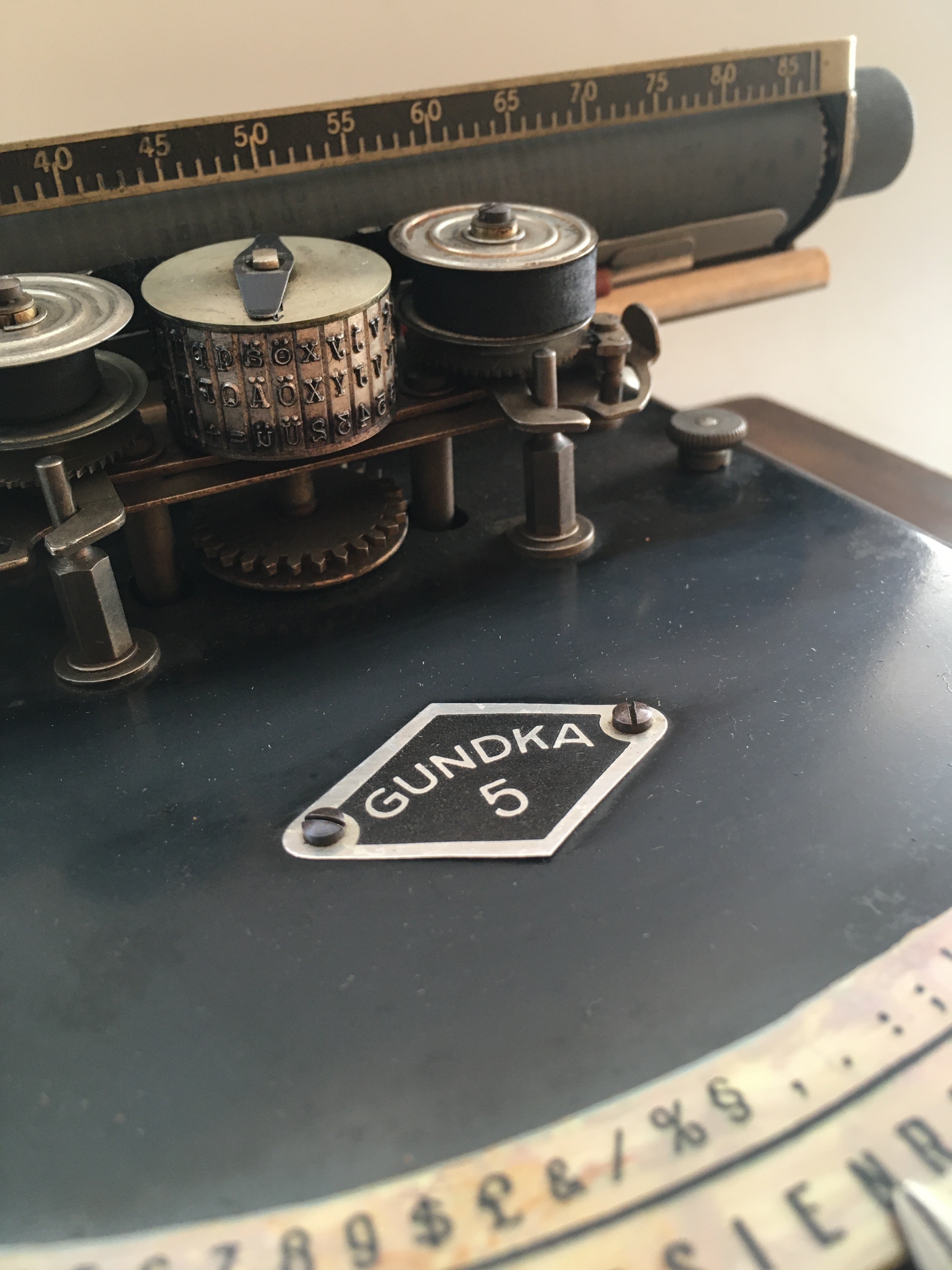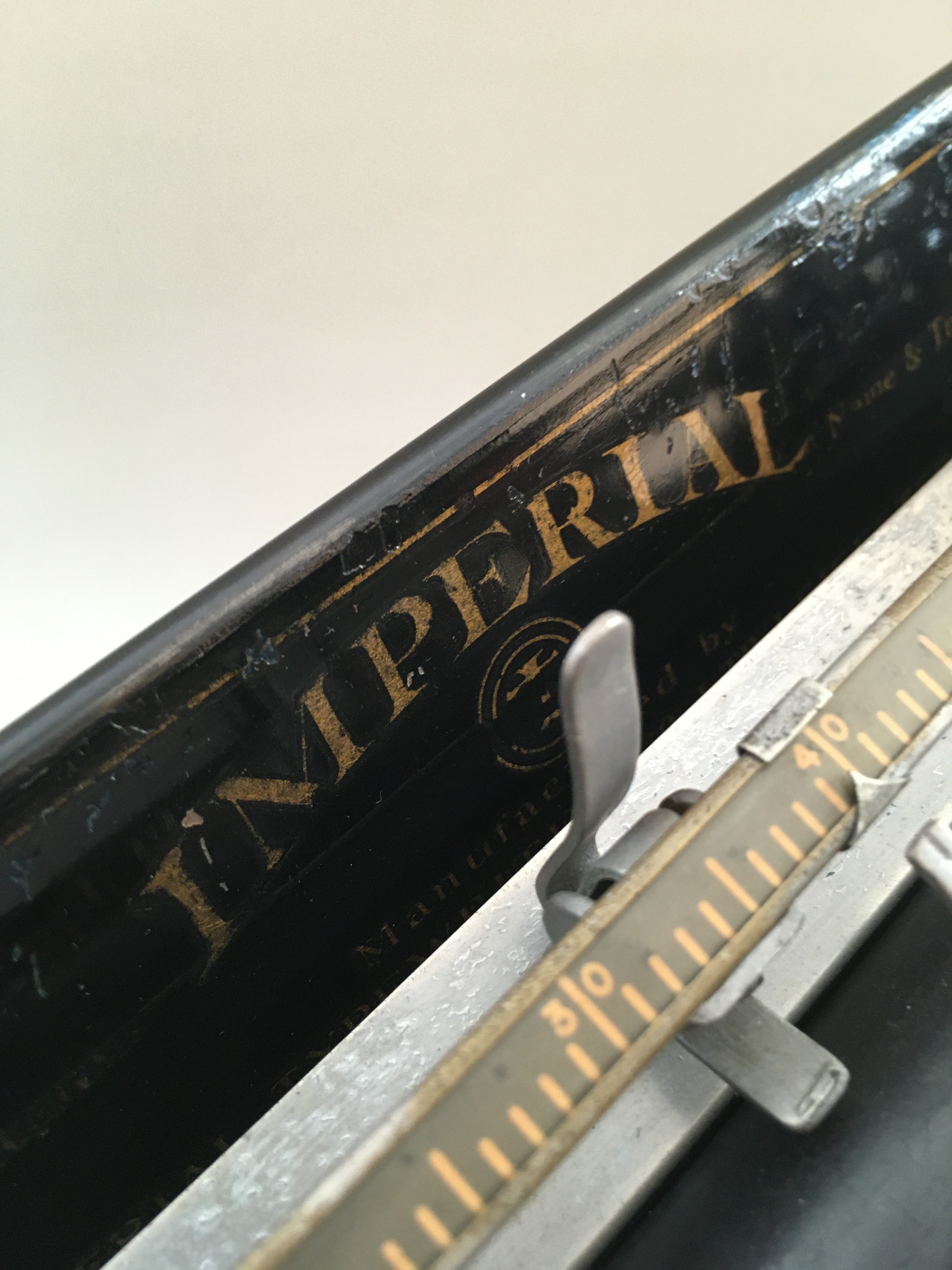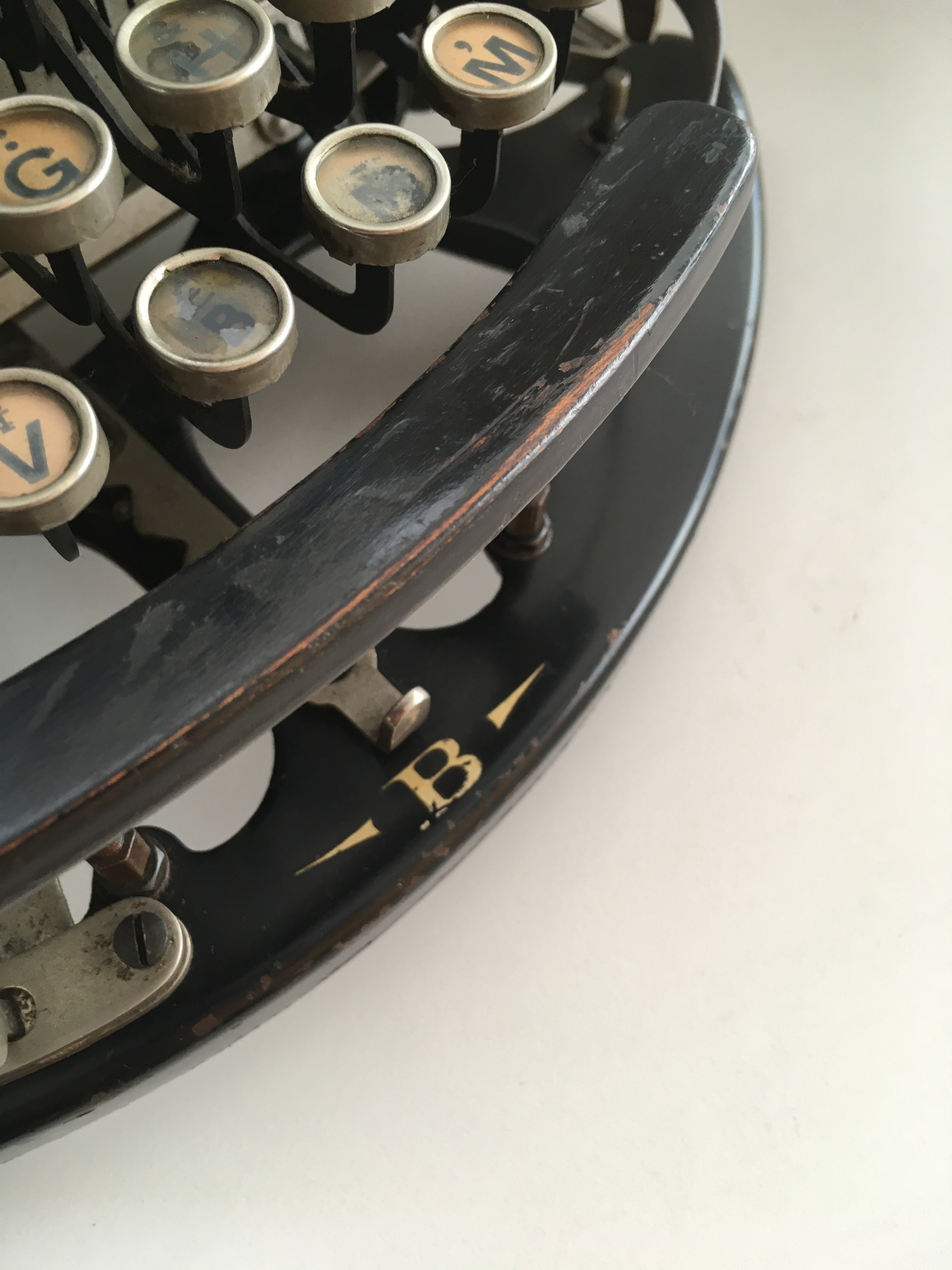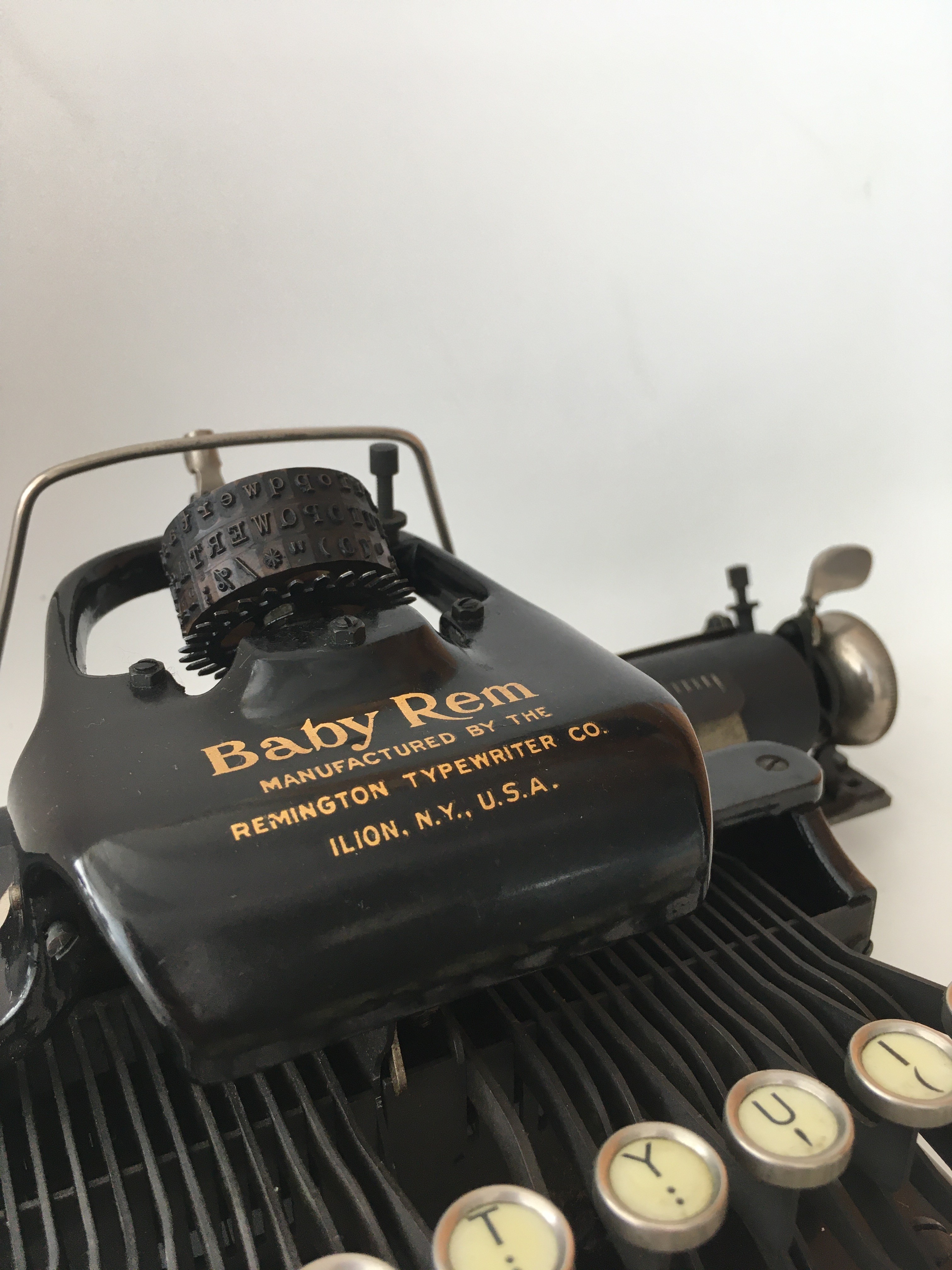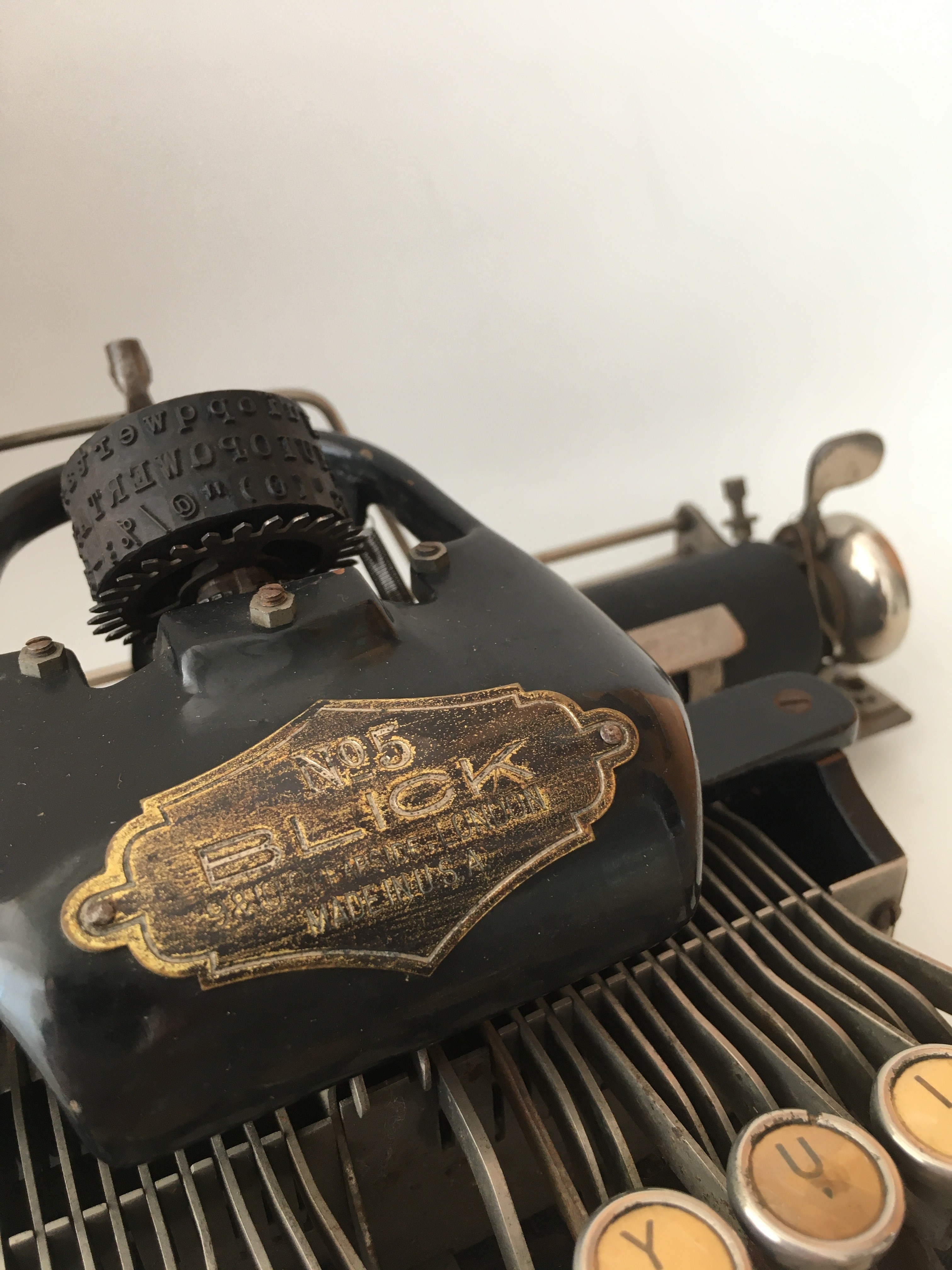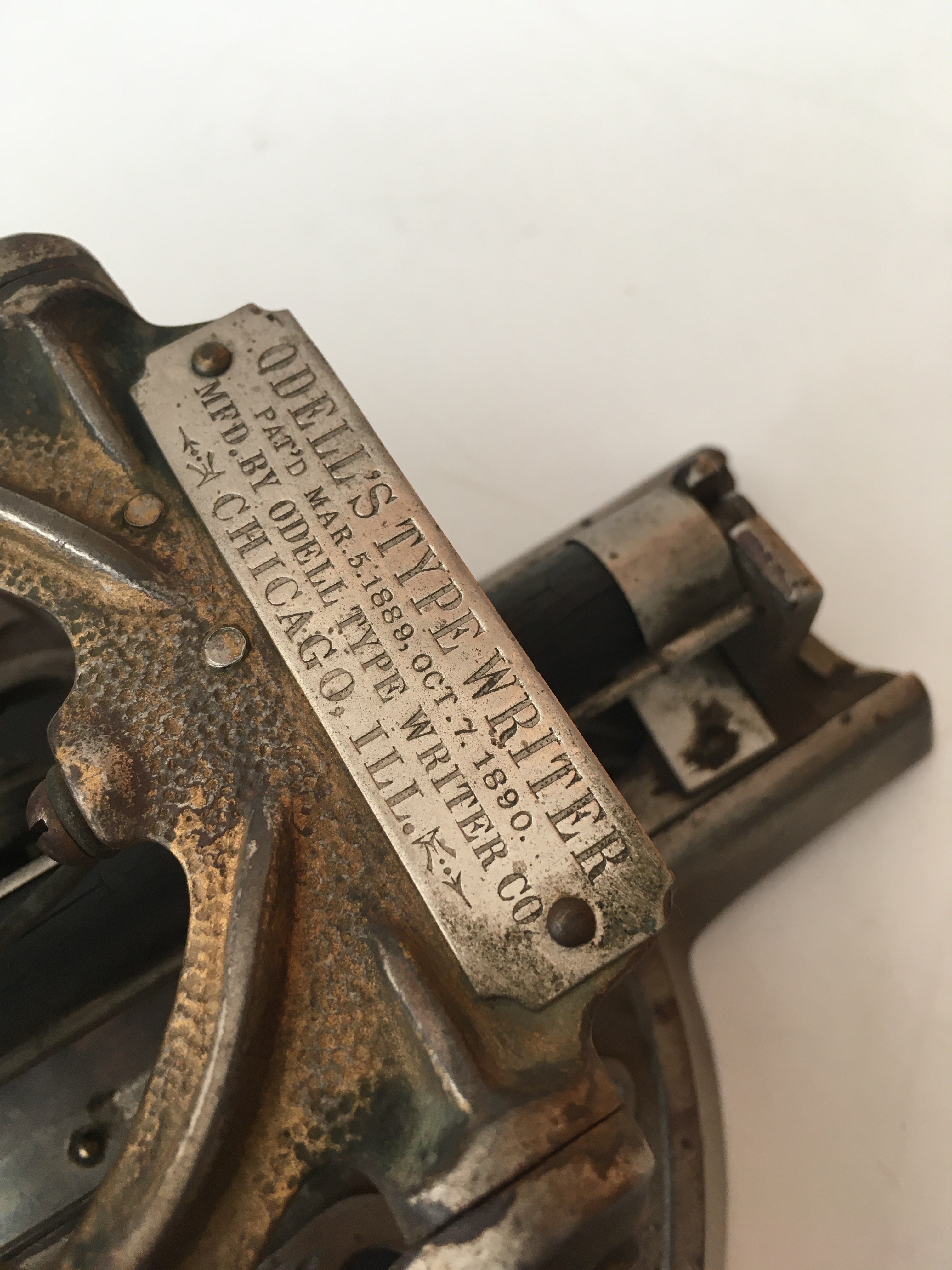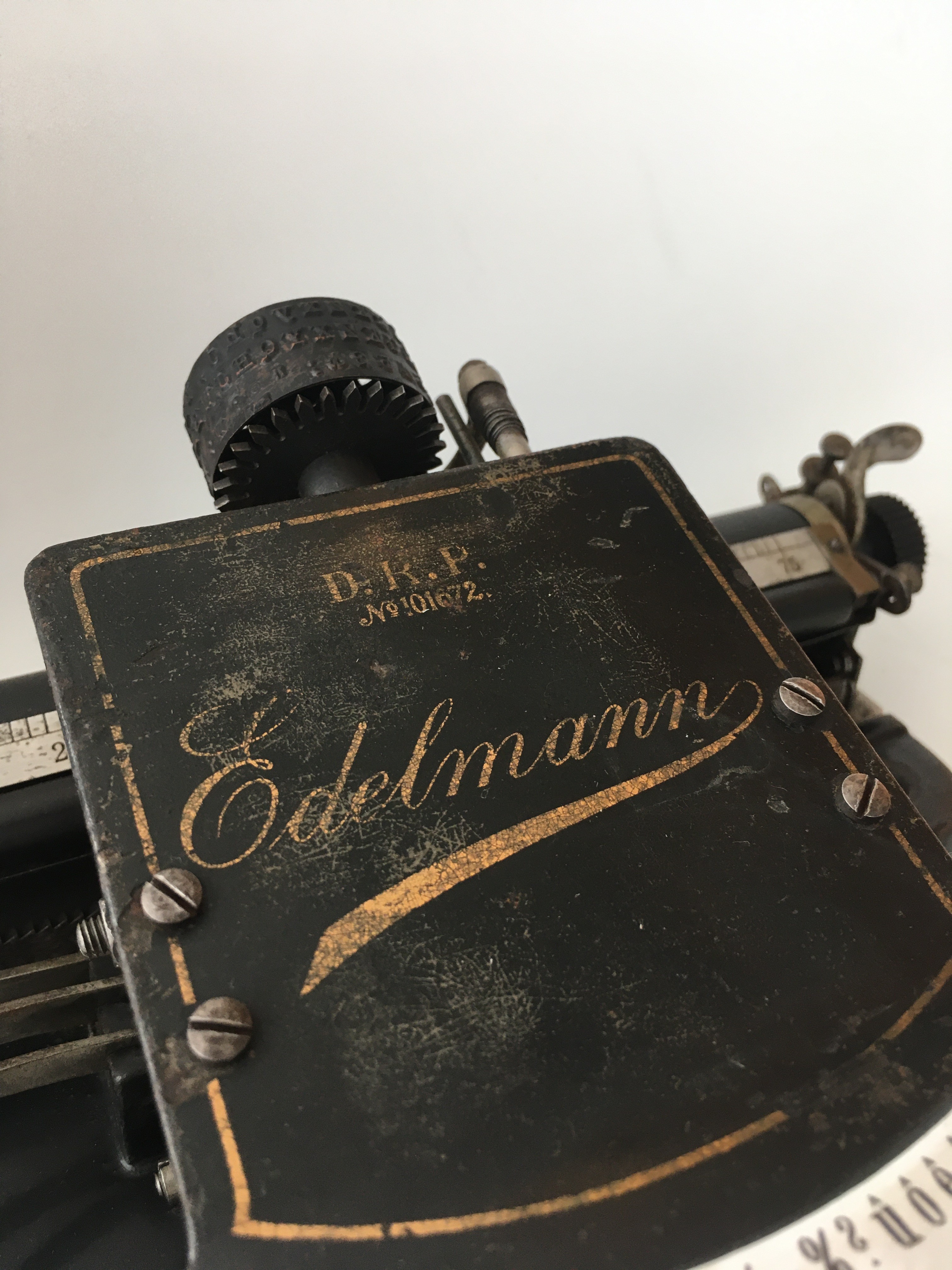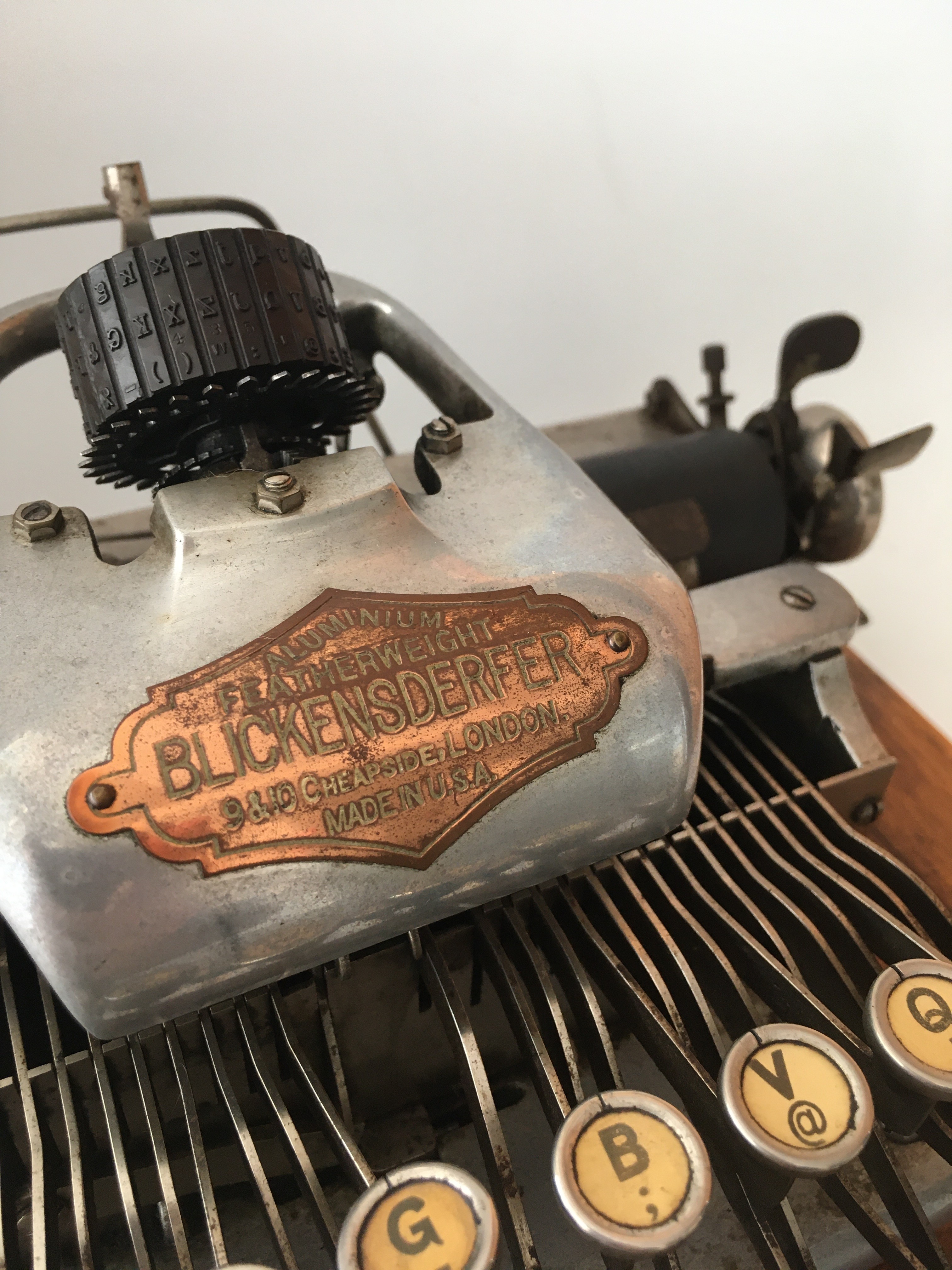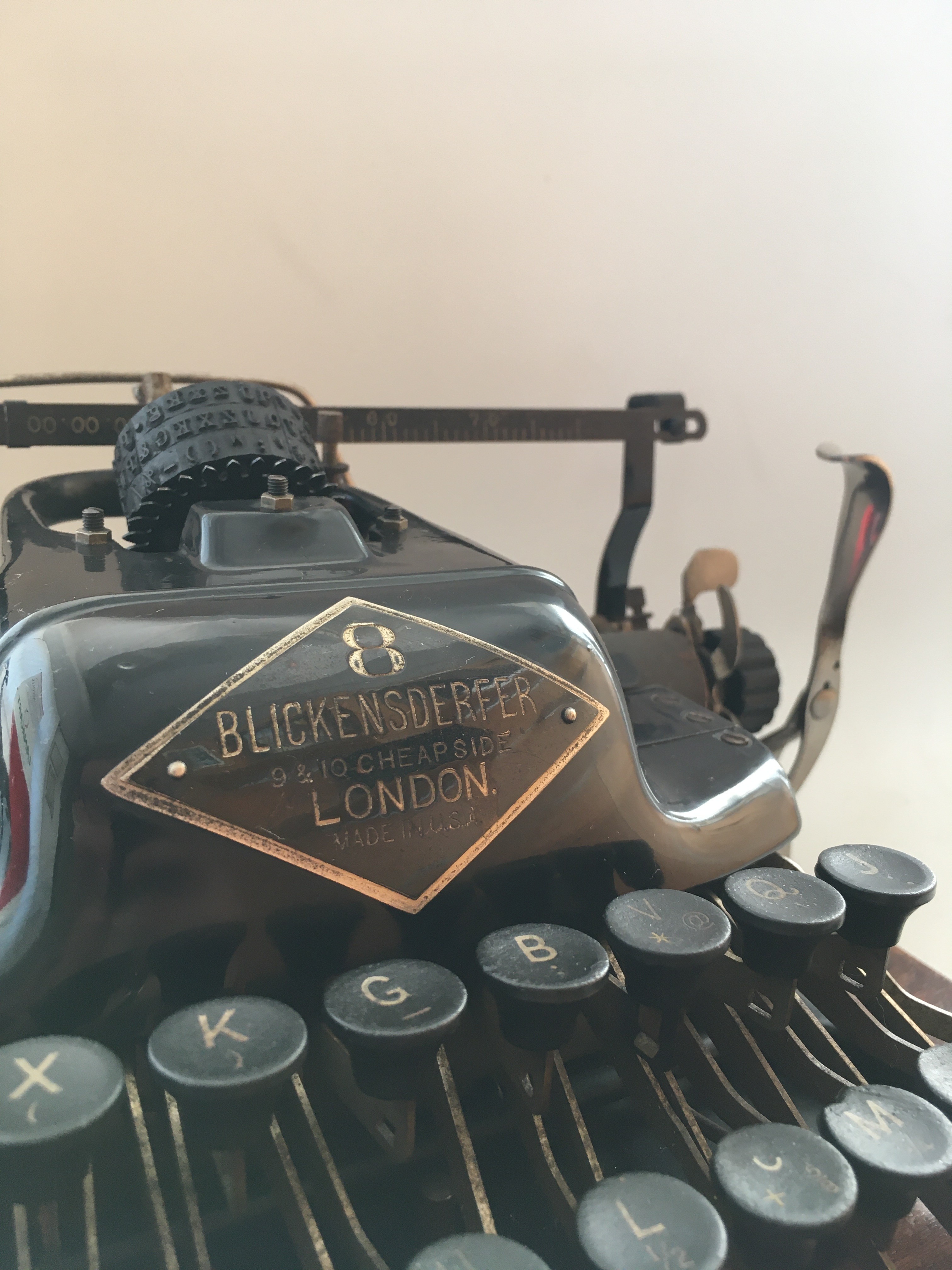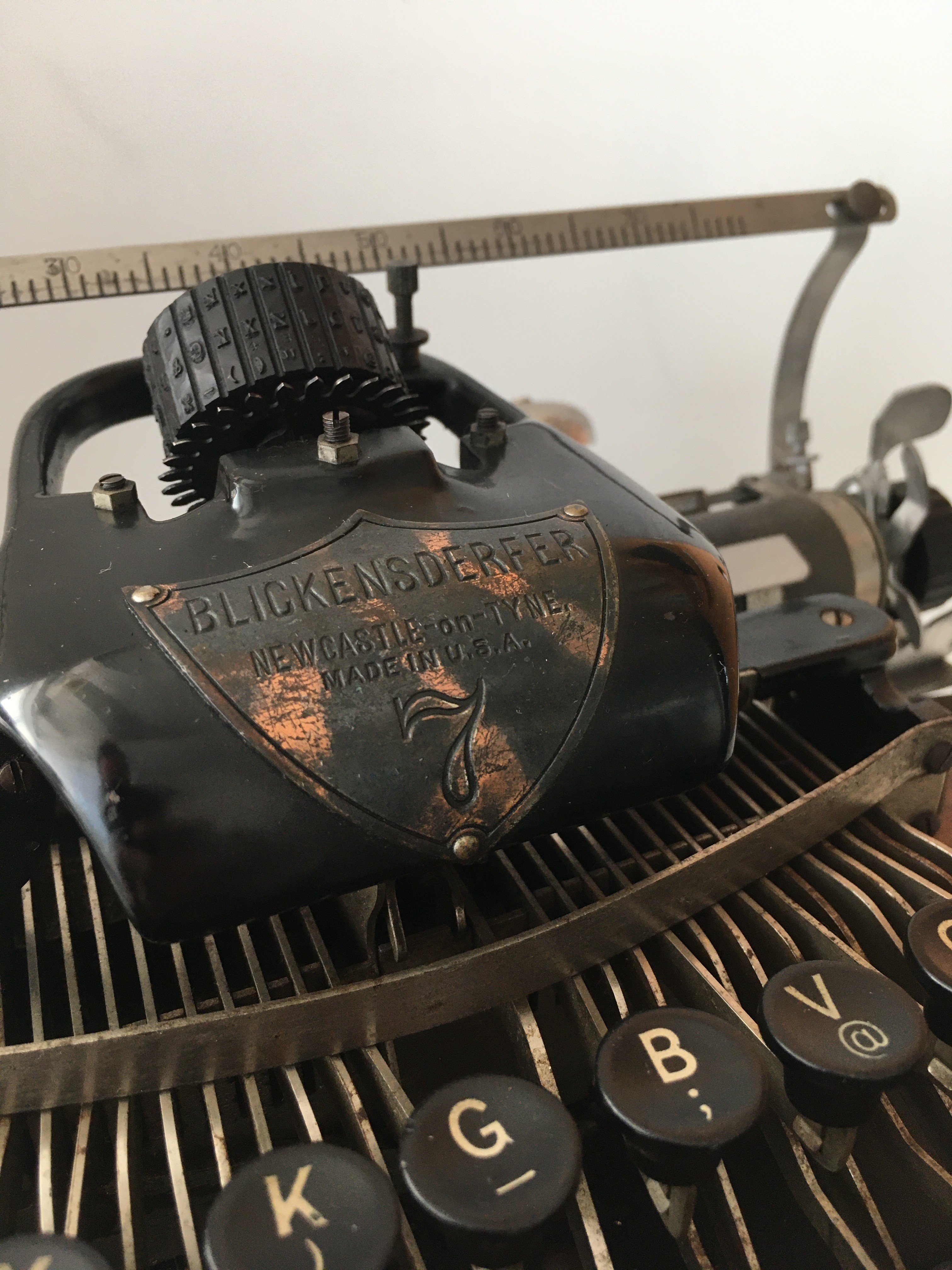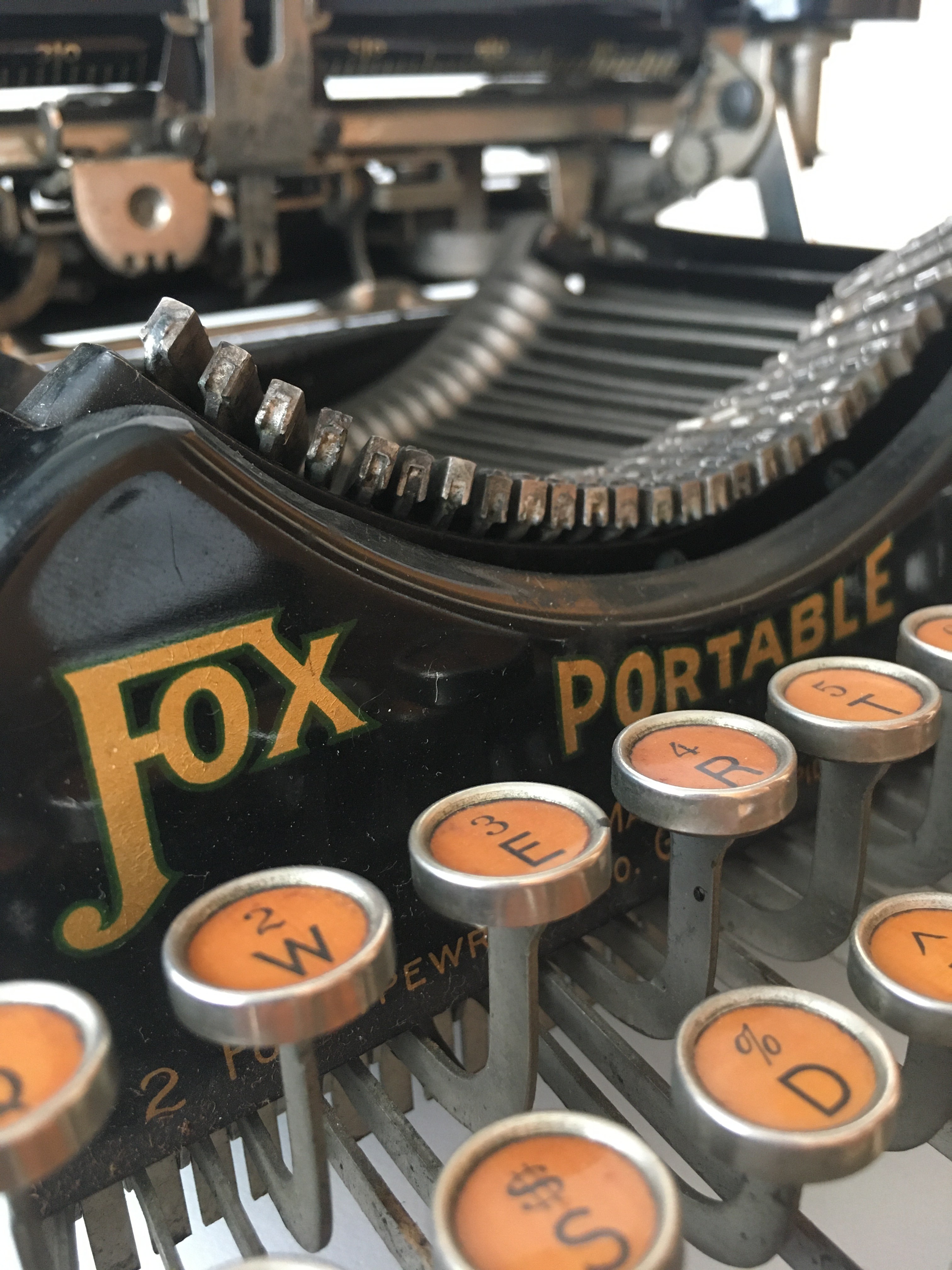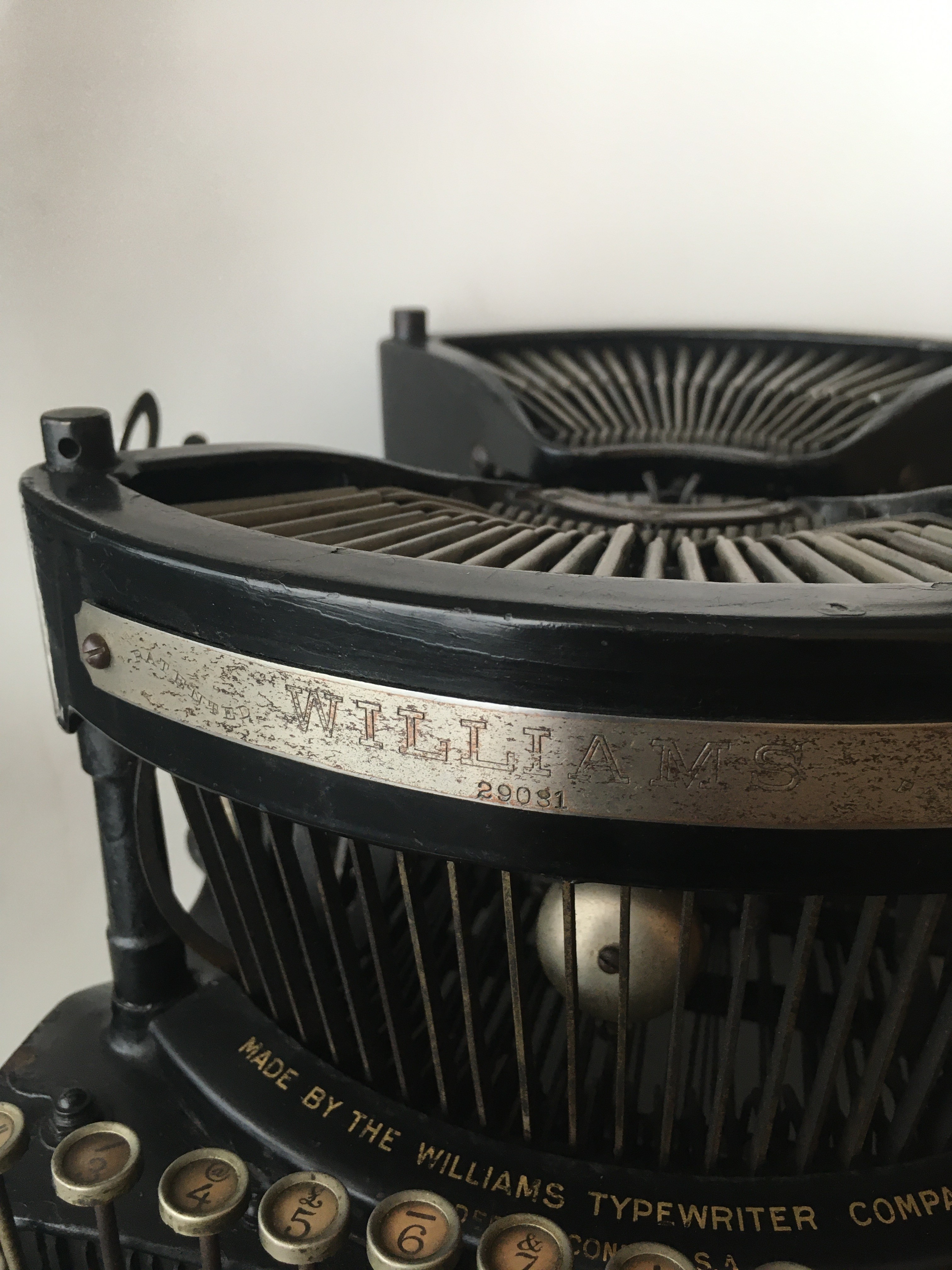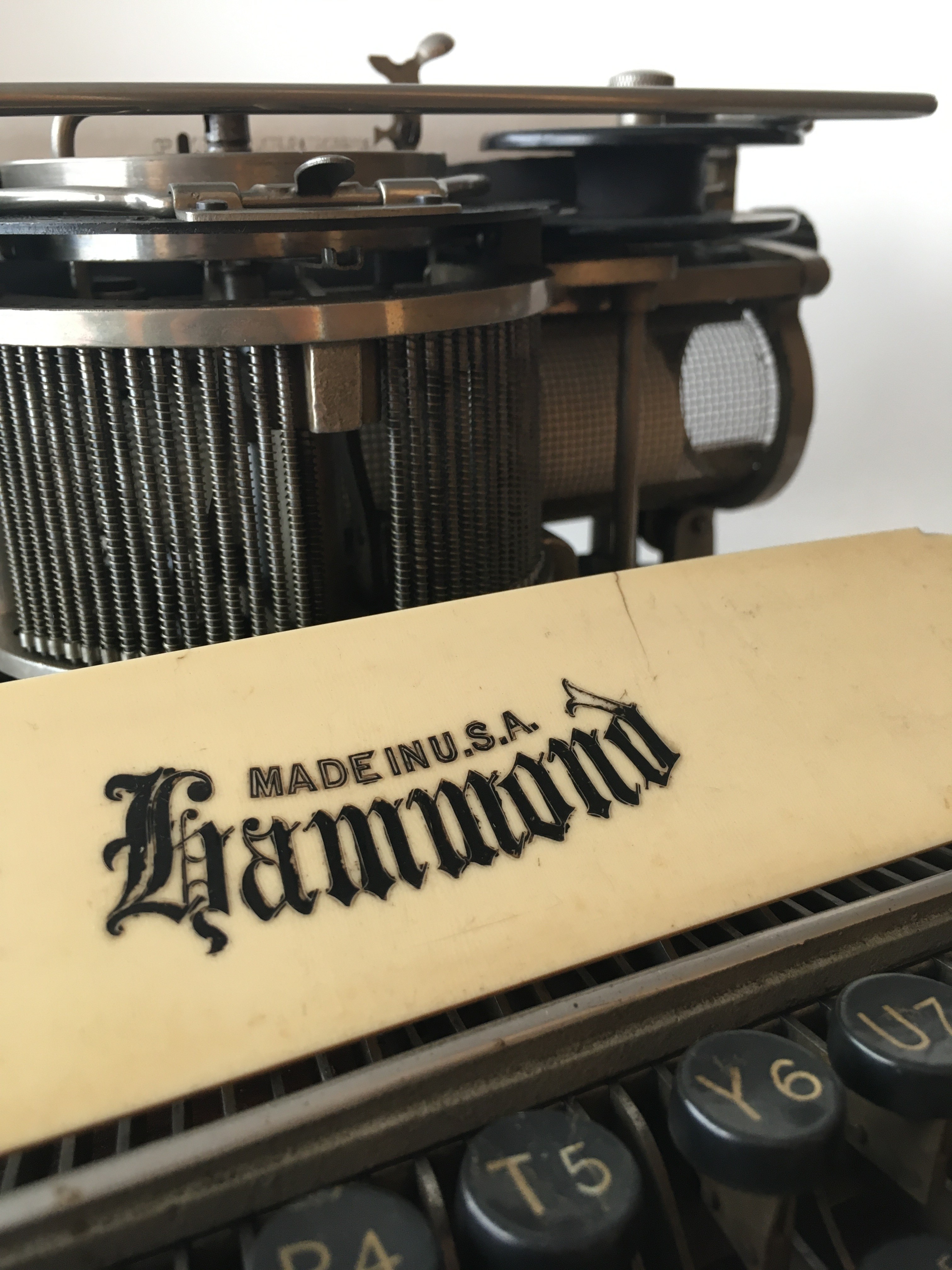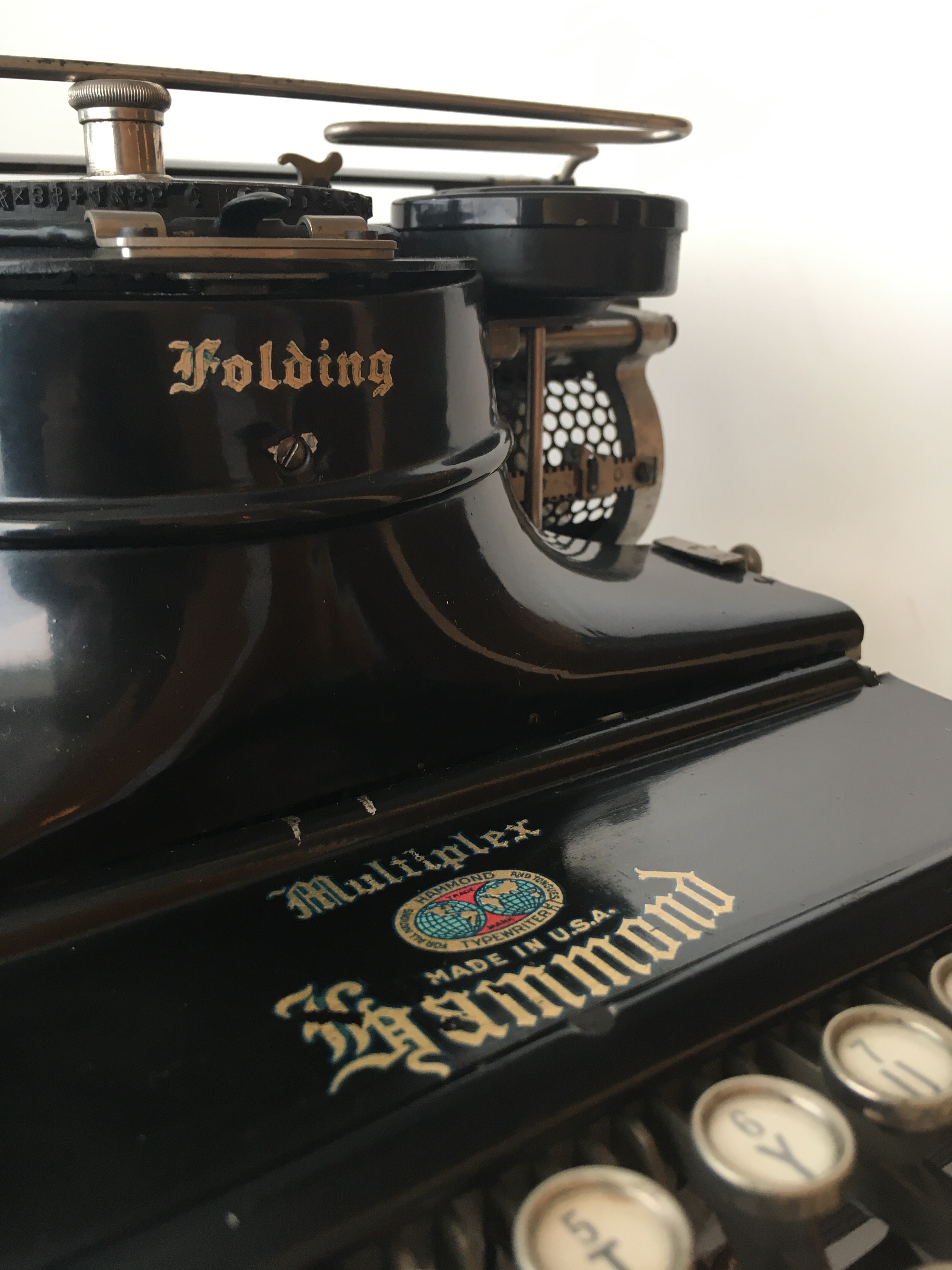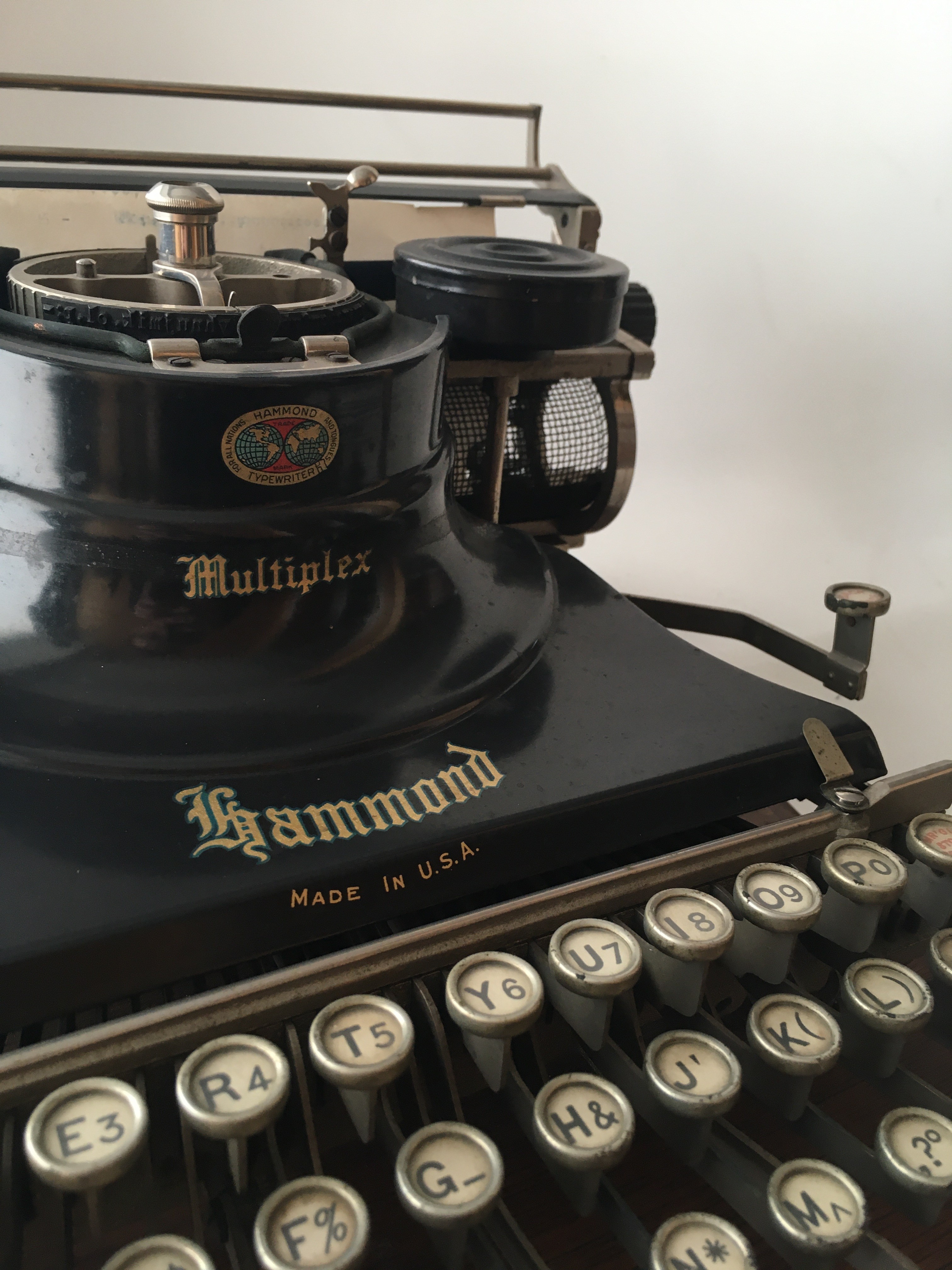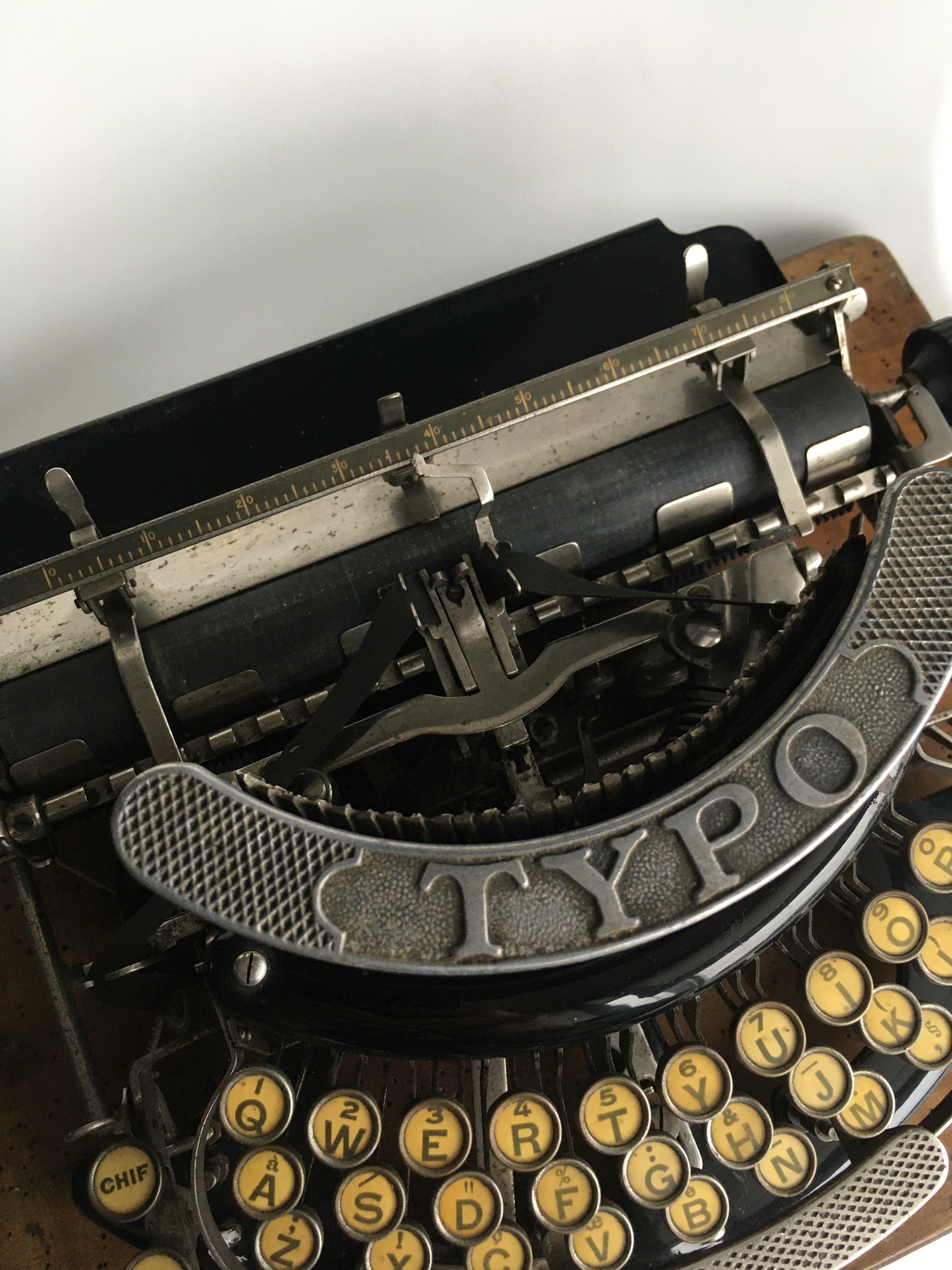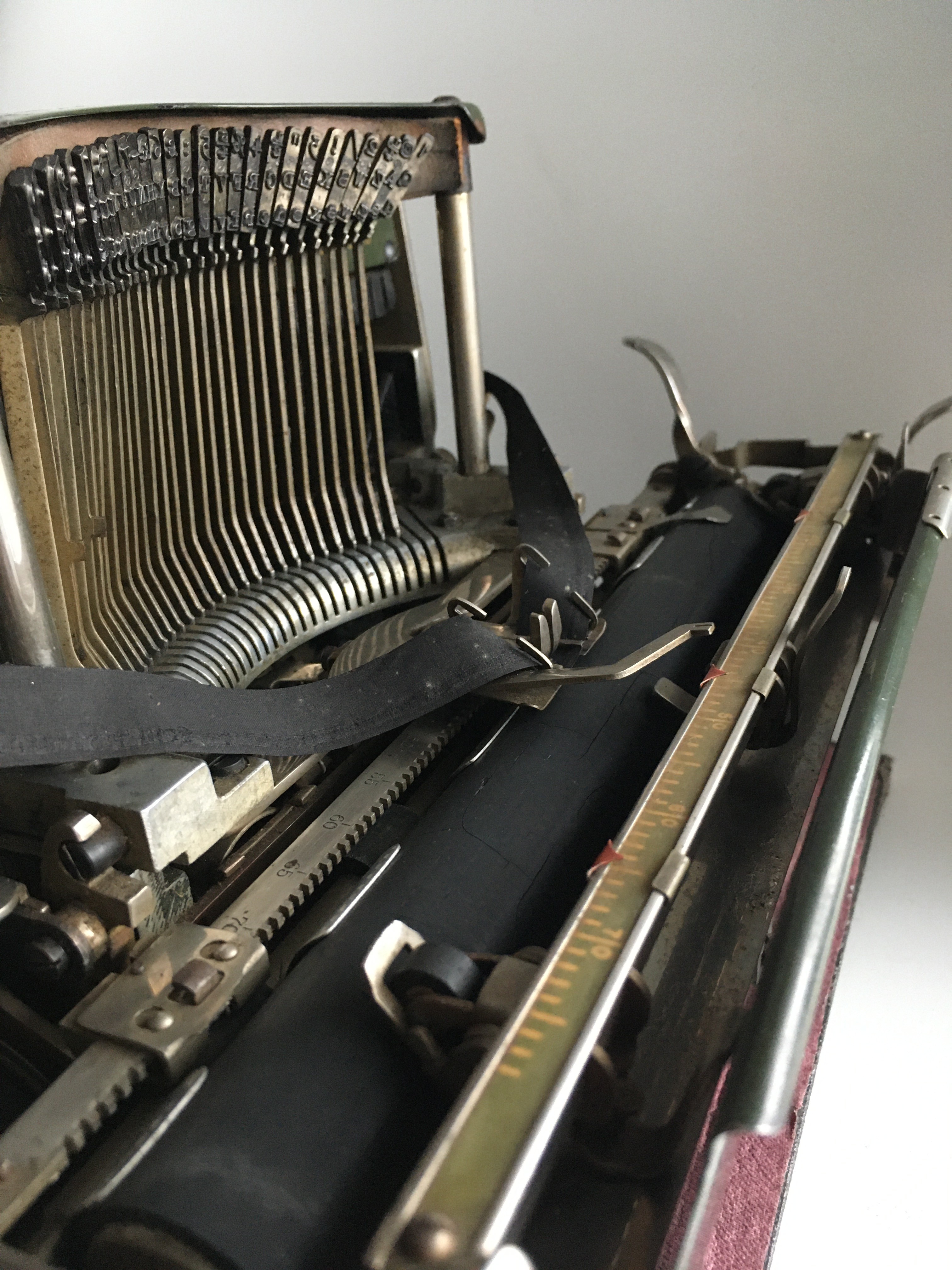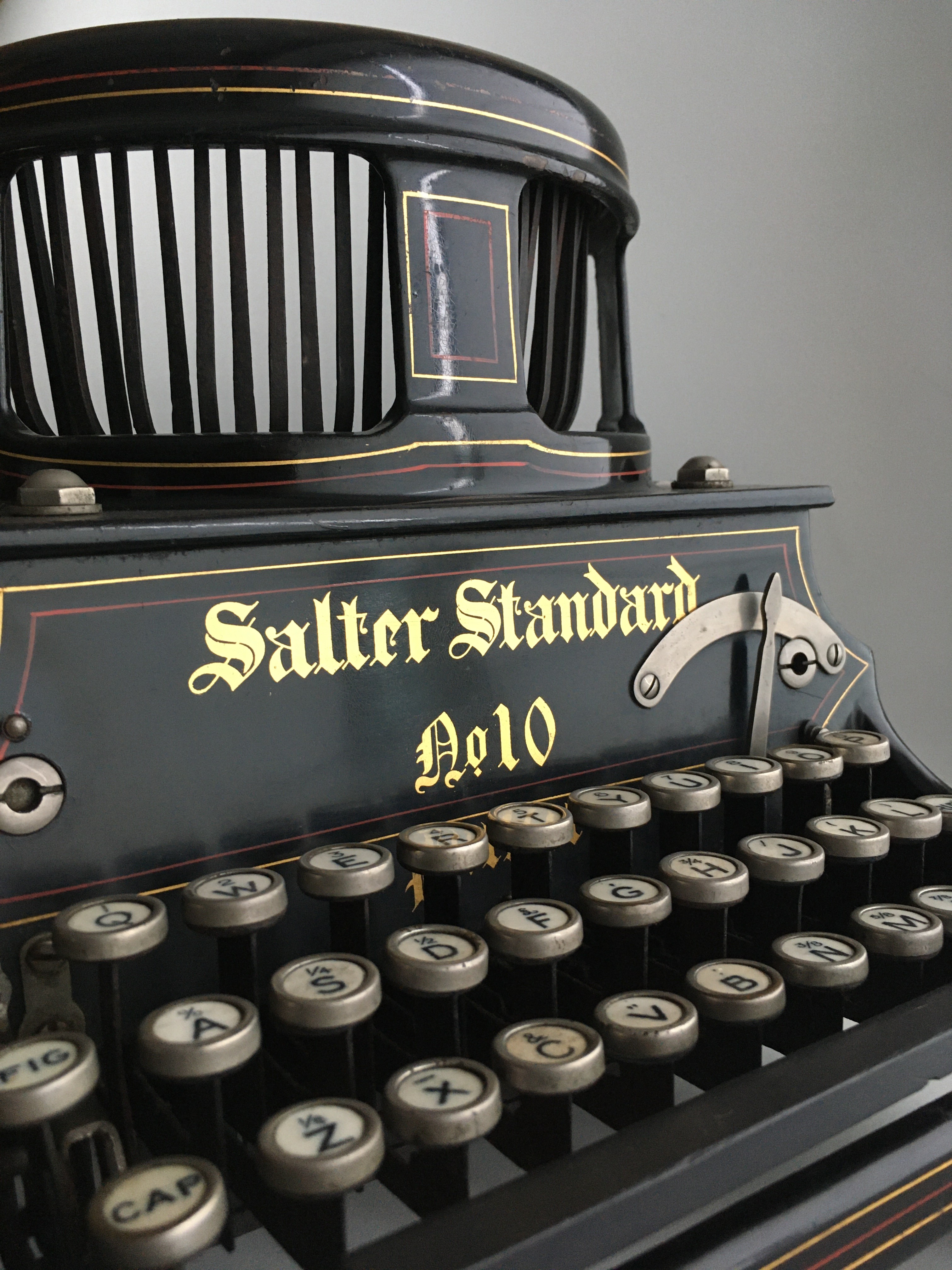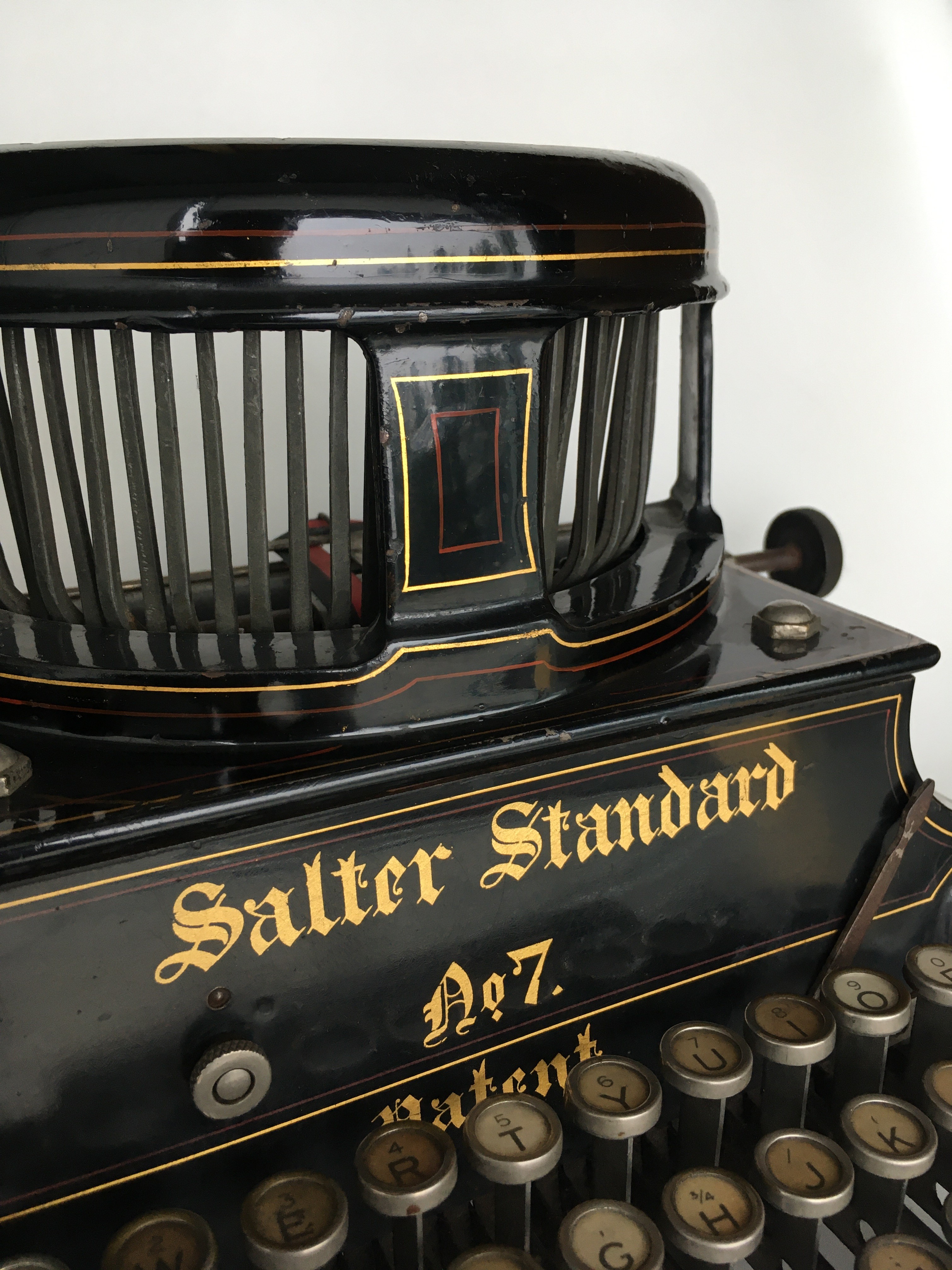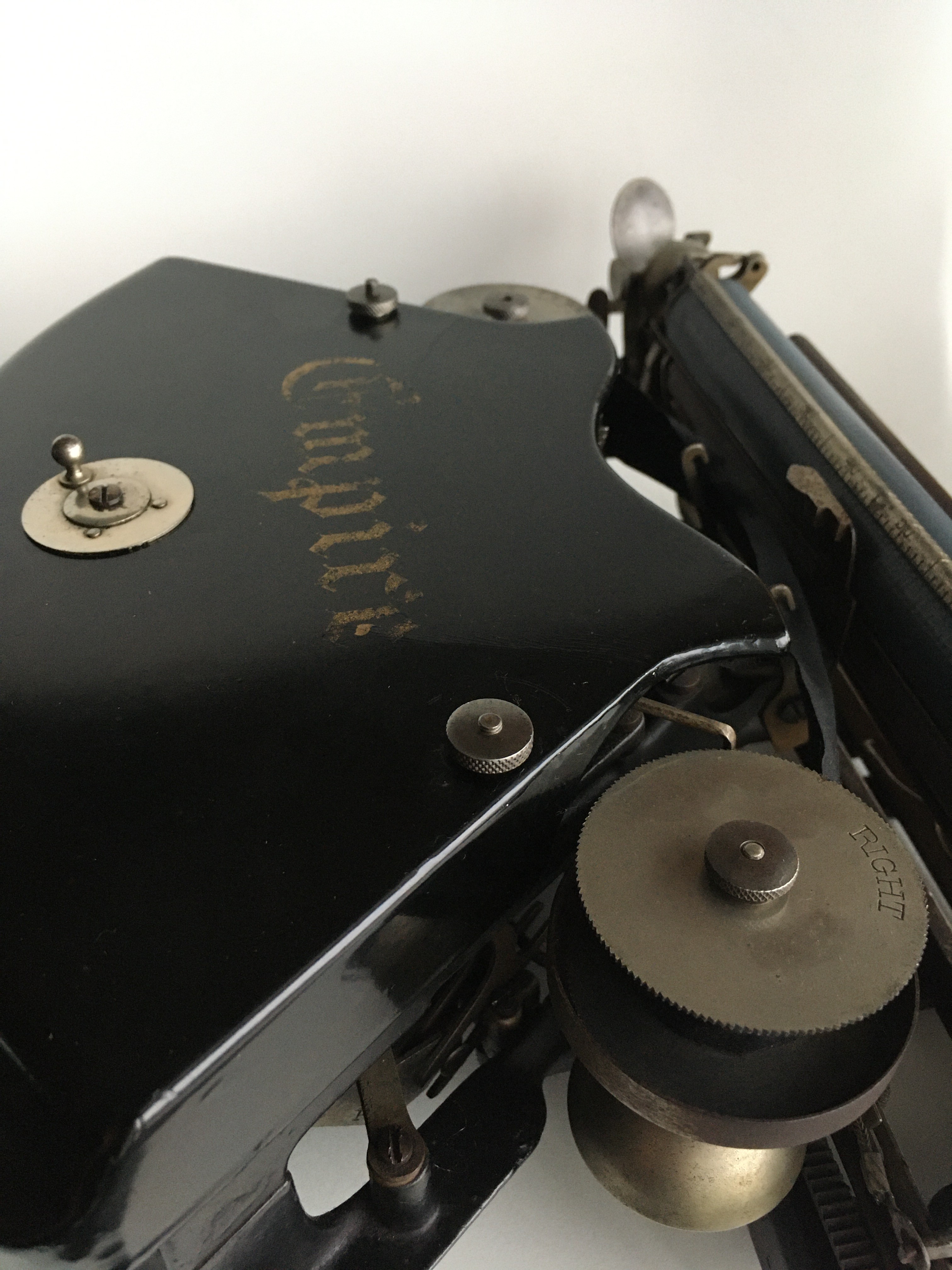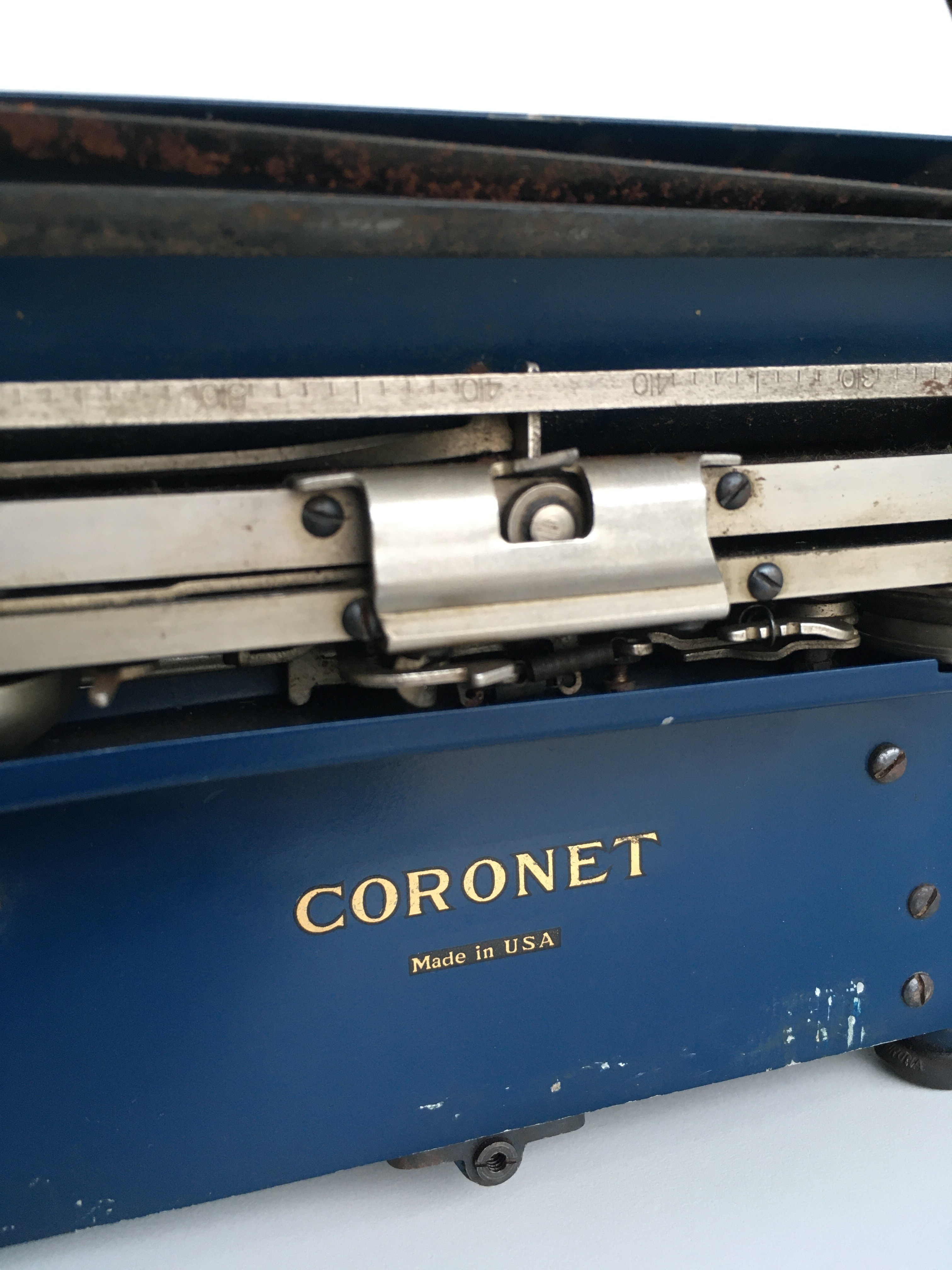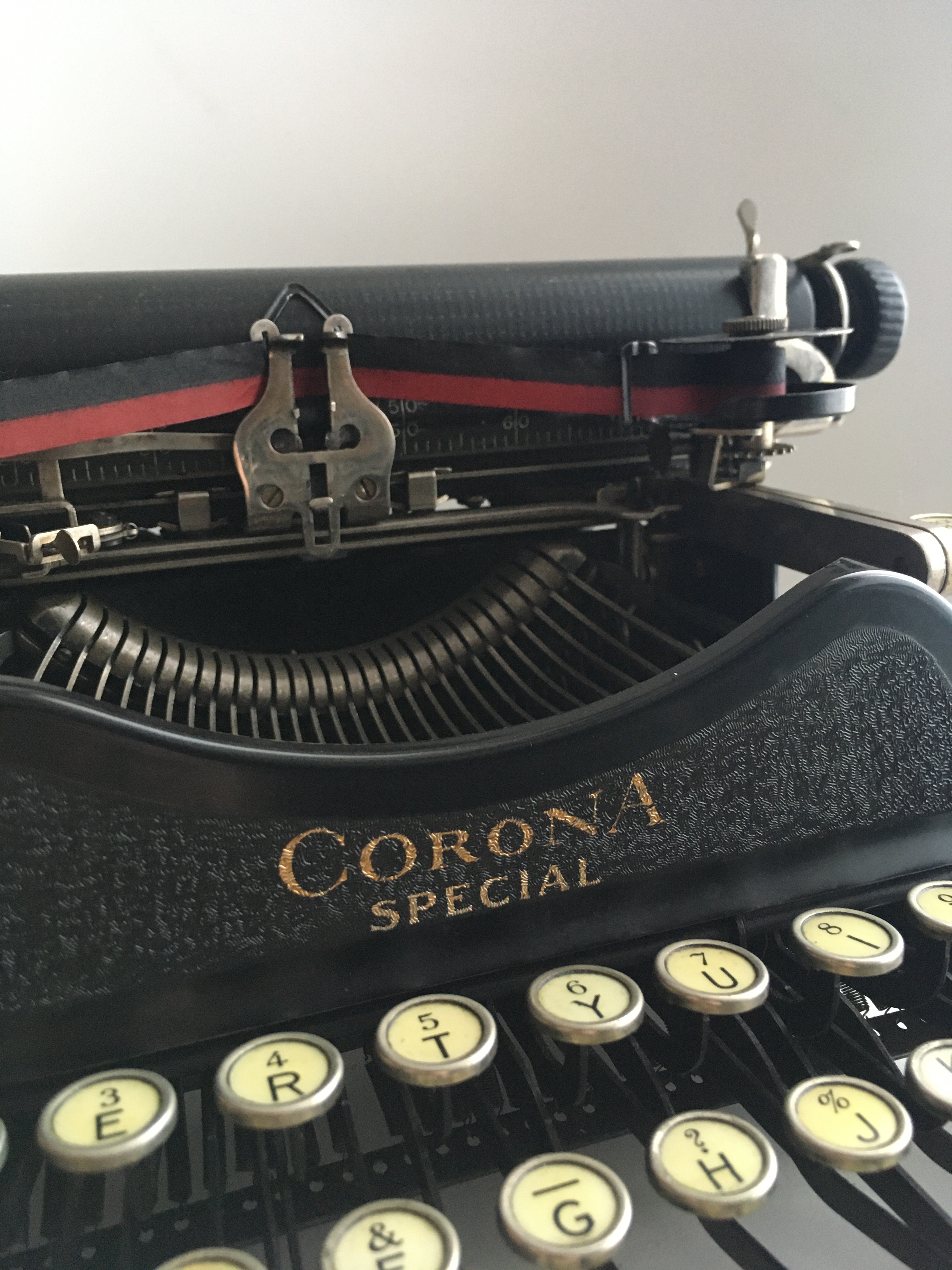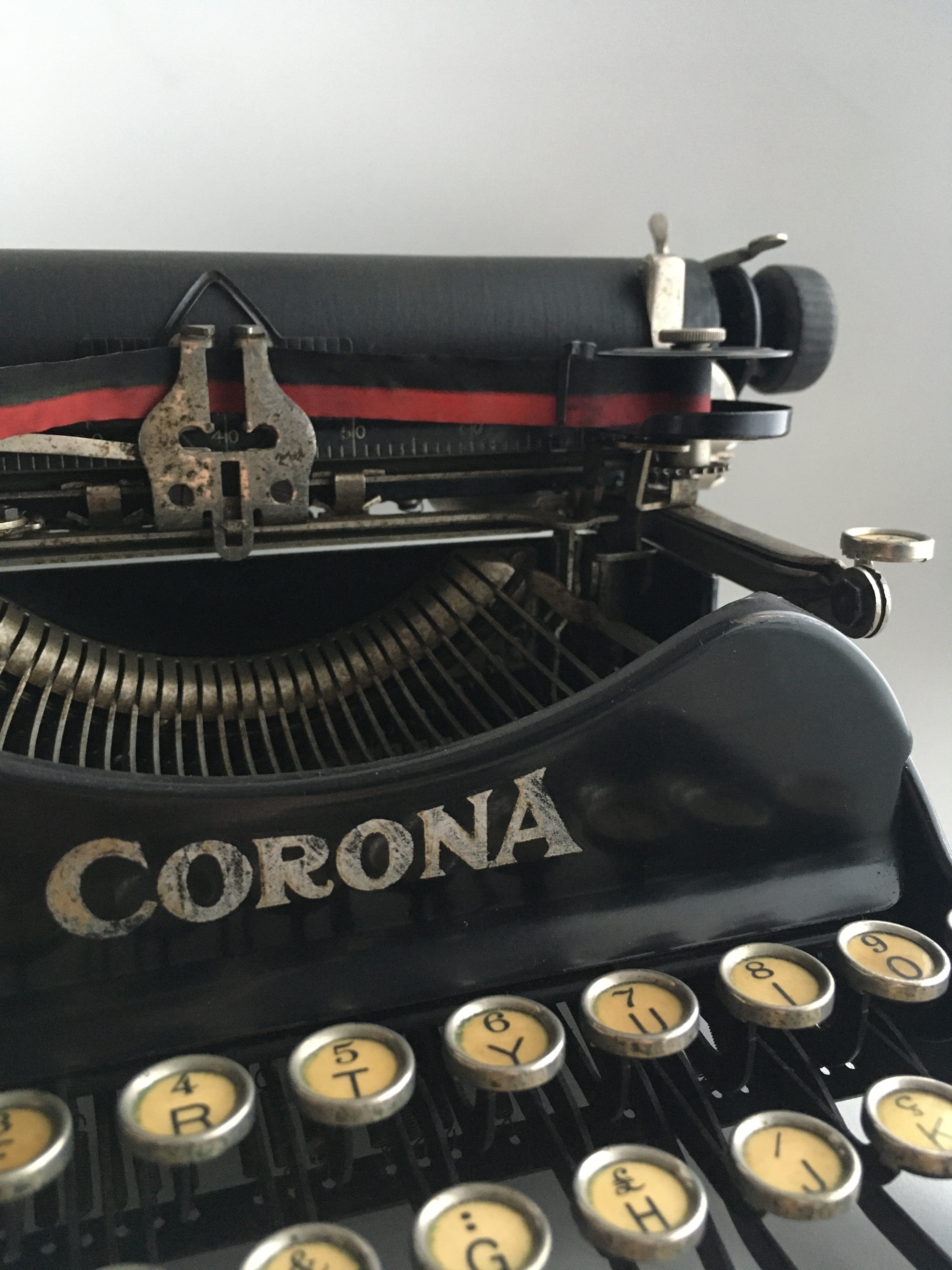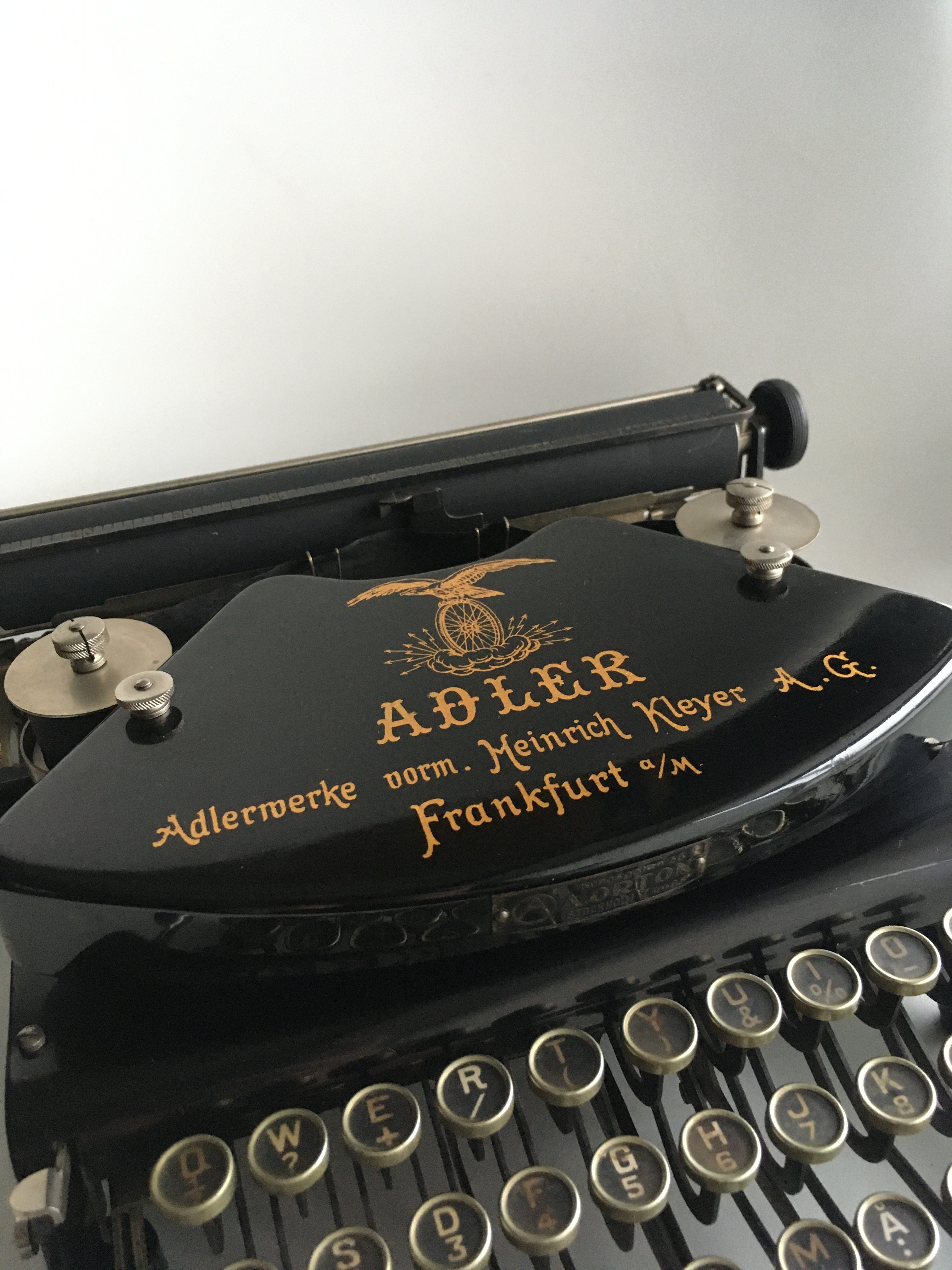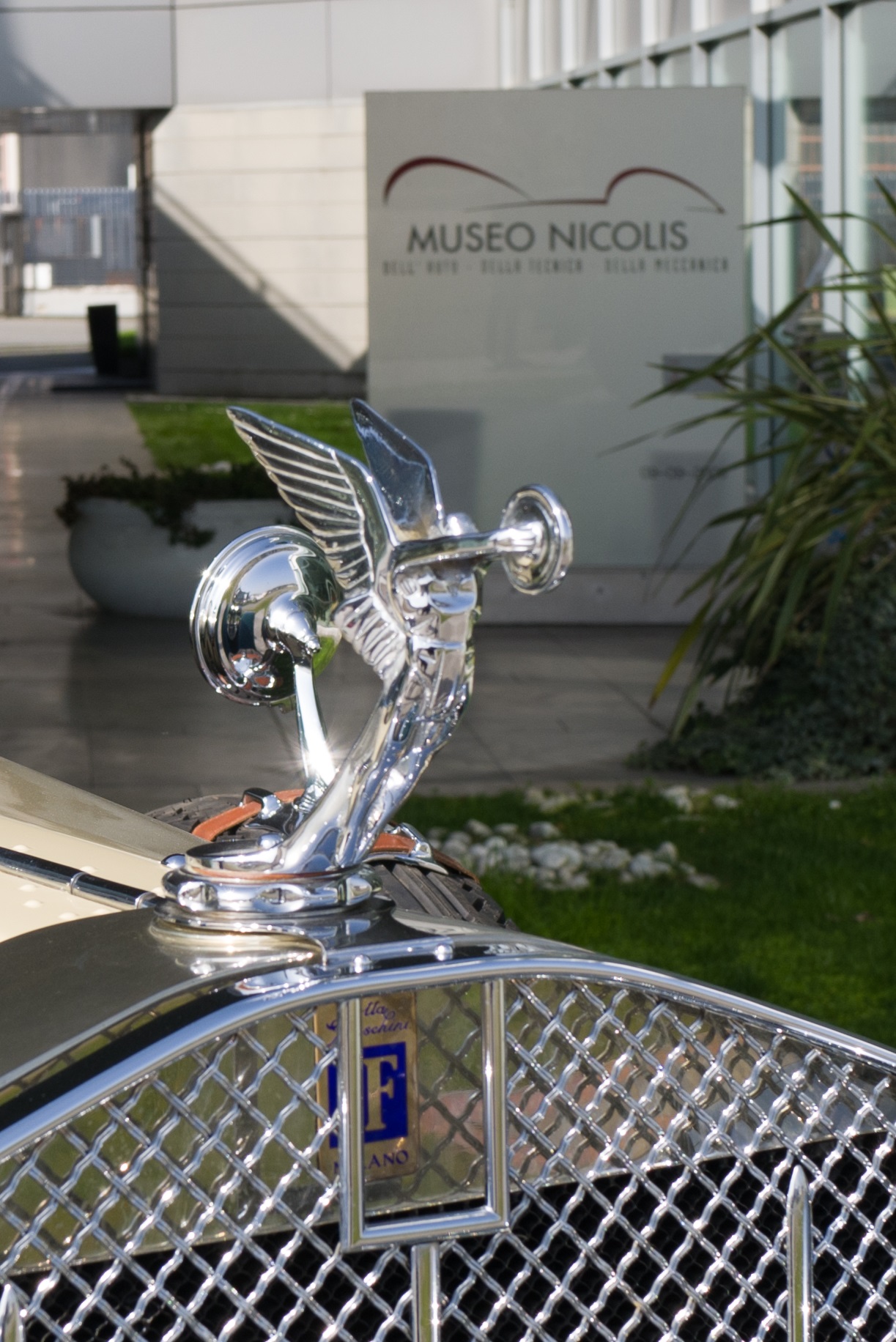Bleistiftscharf Maschine Jupiter, 1920, Germany Since the early 1900s the most common instrument to sharpen pencils was the normal sharpener. From the 1880s on people started producing mechanical pencil sharpeners, industrially produced. The first Jupiter was introduced in 1897; a couple of years later, this first model was improved into the Jupiter N.1 model, patented...
Gundka N°5, 1924
Gundka N°5, 1924, Portable, Germany
Imperial, 1919, Mod. D
Imperial, 1919, Mod. D, UK The machine was built by Hidalgo Moya, an American-Spanish engineer who lived in England. The most striking aspect of the Imperial is the curved keyboard with hammers placed vertically in front of the roller. Initially the machine, complete with bicolor and backspace, costed 10 pounds. In Italy it was sold with 29 keys, 30 in France and...
Imperial, 1915, Mod. B
Imperial, 1915, Mod. B, UK The machine was built by Hidalgo Moya, an American-Spanish engineer who lived in England. The most striking aspect of the Imperial is the curved keyboard with hammers placed vertically in front of the roller. Initially the machine, complete with bicolor and backspace, costed 10 pounds. In Italy it was sold with...
Fair, Motor Bike Expo, Verona.
Motor Bike Expo, from January 16th to 19th
Remington, 1927, Baby Rem
Remington, 1927, Baby Rem, USA In 1893, the ‘Blick’ is the first truly portable typewriter. During the next twenty-five years its ingenious type wheel remains a reliable alternative to machines with type bars. Regrettably, it falls more and more behind with regard to speed. Remington buys up the Blick production material in 1926. And, with...
Blick, 1893, N°5
Blick N°5, 1893, Stati Uniti Blickensderfer took its name from its inventor, engineer George Canfield Blickensderfer. To run his company, he bought a standard typewriter, heavy and bulky. During his train journyes though, he realized how useful a smaller typewriter would have been for businessmen traveling by train; they already existed but they were index...
Odell, 1889, N°2
Odell n.2, 1889, USA
Edelmann, 1897
Edelmann, typewriter, 1897, Germany Wernicke Edelmann & Co. was founded by Wenicke Edelmann in Berlin. This typewriter was produced in 1897, combines the use of characters cylinder with the pointer movement, in order to go beyond single lever typewriters limits, such as the slowness, the no-view of typing and the lower functionality on copying. In 1914 it costed 125 Deutschmarks....
Blickensderfer, 1896, Featherweight
Blickensderfer Featherweight, 1896, USA Blickensderfer took its name from its inventor, engineer George Canfield Blickensderfer. To run his company, he bought a standard typewriter, heavy and bulky. During his train journyes though, he realized how useful a smaller typewriter would have been for businessmen traveling by train; they already existed but they were index typewriters, slow and...
Blickensderfer, 1908, N°8
Blickensderfer N°8, 1908, USA Blickensderfer took its name from its inventor, engineer George Canfield Blickensderfer. To run his company, he bought a standard typewriter, heavy and bulky. During his train journyes though, he realized how useful a smaller typewriter would have been for businessmen traveling by train; they already existed but they were index typewriters, slow and...
Blickensderfer, 1897, N°7
Blickensderfer N°7, 1897, USA Blickensderfer took its name from its inventor, engineer George Canfield Blickensderfer. To run his company, he bought a standard typewriter, heavy and bulky. During his train journyes though, he realized how useful a smaller typewriter would have been for businessmen traveling by train; they already existed but they were index typewriters, slow and...
Fox Portable, 1917
Fox Typewriter Company, Fox Portable, 1917, USA
Williams, 1900, N°4
Williams n.4, United States
Hammond, 1905, N°12
Hammond N°12, 1905, USA J. B. Hammond, telegrapher during the American Civil War, he was one of the first to realise that a typewriter would be a valid help in his job. E. J. Manning helped Hammond to make the typewriter, which was then patented in 1880 and put on the market in 1881 by...
Hammond, 1921, Folding Multiplex
Hammond, 1921, Folding Multiplex, USA J. B. Hammond, telegrapher during the American Civil War, he was one of the first to realise that a typewriter would be a valid help in his job. E. J. Manning helped Hammond to make the typewriter, which was then patented in 1880 and put on the market in 1881 by the “Hammond Typewriter...
Hammond, 1915, Multiplex
Hammond Multiplex, 1915, USA J. B. Hammond, telegrapher during the American Civil War, he was one of the first to realise that a typewriter would be a valid help in his job. E. J. Manning helped Hammond to make the typewriter, which was then patented in 1880 and put on the market in 1881 by the “Hammond Typewriter Company” in...
Typo, 1918, N°1
Typo, 1918, N°1
Imperial, 1919, Mod. D Portable
Imperial, 1919, Mod. D Portable, UK The machine was built by Hidalgo Moya, an American-Spanish engineer who lived in England. The most striking aspect of the Imperial is the curved keyboard with hammers placed vertically in front of the roller. Initially the machine, complete with bicolor and backspace, costed 10 pounds. In Italy it was sold with 29 keys, 30 in France...
Salter, 1908, N°10
Salter, 1908, N°10, UK
Salter, 1907, N°7
Salter, 1907, N°7, UK
Empire N°2, 1890
Empire N°2, 1890, UK The Empire was the first in line of a highly successful range of thrust-action typewriters. The perfect adjustment eliminates mistakes and ensures accurate alignment. The machine was also built by the Heinrich Meyer company in Germany, originally under the Empire brand, but soon after minor changes were made and the machine...
Coronet, 1910
Coronet, 1910
Corona Special, 1911
Corona Special, 1911, USA In 1886, Lyman C. Smith and his brothers Wilbert, Monroe, and Hurlbut founded the Smith Premier Typewriter Company. In 1906, New York City’s Rose Typewriter Company launched the first successful portable typewriter. They were bought by Smith in 1909 and renamed the Standard Typewriter Company. In order to promote the use of the typewriter, the company initially offered typing services...
Corona, 1913, N°3
Corona N°3, 1913, USA The Corona 3 was one of the most successful machines in typewriter history, with more than 600,000 machines built and sold over a period of almost 30 years. In 1886, Lyman C. Smith and his brothers Wilbert, Monroe, and Hurlbut founded the Smith Premier Typewriter Company. In 1906, New York City’s...
Adler, 1920
Adler, 1920, Germany Adler was a German automobile and motorcycle manufacturer from 1900 until 1957. The ‘Adler’ name is German for ‘eagle’. The Adler factory produced bicycles, typewriters, motorcycles and calculators in addition to cars.
Isotta Fraschini, 1929, Tipo 8A
Isotta Fraschini “Tipo 8A”, Carrozzeria Castagna, 1929 The “Società Milanese d’Automobili Isotta Fraschini” was founded in Milan in 1900 by a group of enthusiasts and soon became one of the most prestigious Italian luxury car manufacturers. The Tipo 8, presented in 1919, was one of the first production cars in the world fitted with an...
Event, Cartiere Saci.
Cartiere Saci celebrates the special milestone of 60 years at Museo Nicolis.

